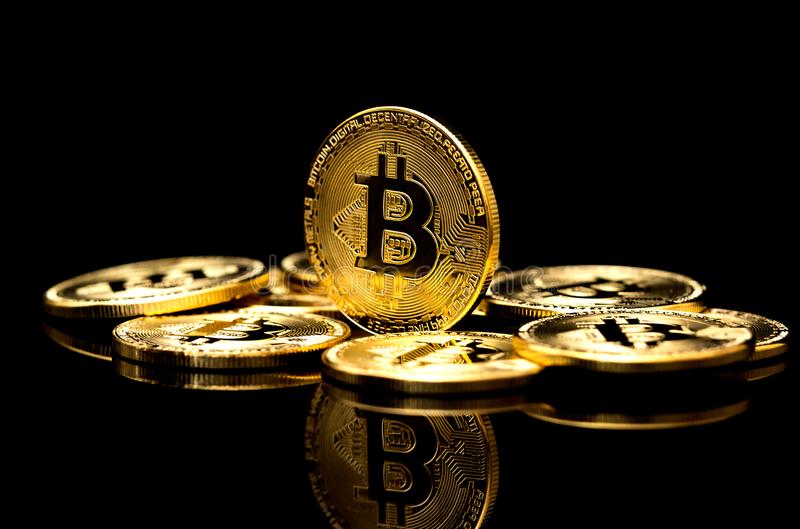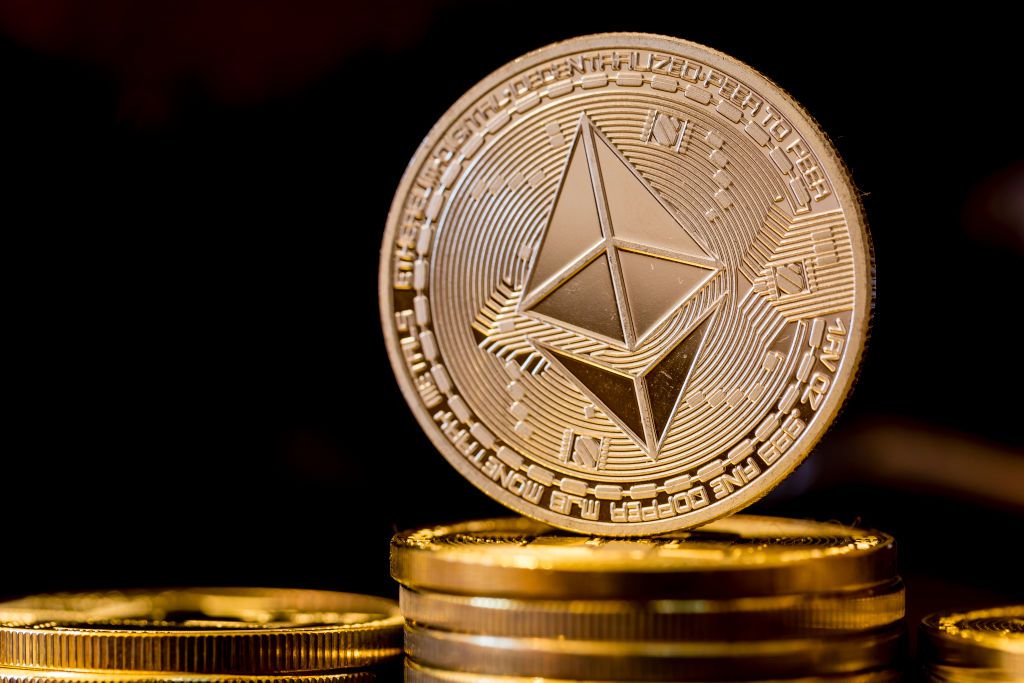Top 9 Most Popular Blockchains in Different Industries In 2023

Top 9 Most Popular Blockchains in Different Industries In 2023? Blockchain technology has become one of the most sought-after technological advancements that have revolutionized industries worldwide. Blockchain is an innovative technology that enables digital information to be distributed, but not copied, making it a secure and tamper-proof way of storing and transmitting data.
Blockchain technology is no longer a concept but a reality that is shaping various industries in different ways. Several industries have embraced blockchain technology, and this has led to the creation of several blockchain platforms. Blockchain technology offers secure, efficient, and transparent solutions to problems in different industries.
1. Bitcoin

Bitcoin is a digital currency that is decentralized and operates on a peer-to-peer network. It was created in 2009 by an unknown person or group of people using the pseudonym Satoshi Nakamoto. Bitcoin offers a decentralized system that enables users to send and receive payments without intermediaries such as banks.
Bitcoin operates on a blockchain network, which is a digital ledger that records all transactions made on the network. The blockchain network consists of blocks that contain information about all transactions made on the network. The blocks are linked together in a chronological order, forming a chain of blocks, hence the name blockchain.
One of the primary advantages of Bitcoin is that it offers fast and low-cost transactions. Transactions can be made within seconds, and the fees charged for transactions are typically lower than those charged by traditional payment methods. Bitcoin transactions are also secure since they are recorded on a decentralized network, making it difficult for fraudsters to manipulate transactions.
Another advantage of Bitcoin is that it is scarce, with a limited supply of 21 million coins. This limited supply ensures that Bitcoin retains its value and is not subject to inflation. The value of Bitcoin is determined by supply and demand in the market.
Bitcoin has gained popularity over the years, with many businesses accepting Bitcoin as a payment method. However, it is important to note that Bitcoin is still a relatively new technology, and its value can be volatile. Investors should be aware of the risks involved before investing in Bitcoin.
2. Ethereum

Ethereum is a decentralized blockchain platform that was developed by Vitalik Buterin in 2013. Ethereum is the second-largest cryptocurrency by market capitalization, after Bitcoin. Ethereum has gained popularity due to its ability to offer smart contracts, making it a popular blockchain platform in various industries.
Ethereum’s smart contract functionality enables users to create and execute contracts without the need for intermediaries. Smart contracts are self-executing contracts that are coded to execute when specific conditions are met. These conditions are predetermined and are based on the agreement between the parties involved. Smart contracts can be used in various industries, including finance, real estate, supply chain management, and more.
Ethereum’s blockchain technology enables decentralized applications (DApps) to be built on the Ethereum platform. DApps are applications that run on a decentralized network, meaning that they are not controlled by a single entity. Ethereum’s blockchain technology enables DApps to be built with smart contracts, which enable the creation of decentralized autonomous organizations (DAOs). DAOs are organizations that are run by smart contracts, and their rules and regulations are encoded into the blockchain. This makes DAOs transparent, efficient, and decentralized.
Ethereum’s cryptocurrency is called Ether (ETH). Ether is used to pay transaction fees and to execute smart contracts on the Ethereum platform. Ether is also used as a store of value, like Bitcoin. Ethereum’s blockchain technology enables the creation of ERC-20 tokens, which are tokens built on the Ethereum platform. ERC-20 tokens can be used to represent assets like currencies, commodities, and securities.
3. Ripple
Ripple is a blockchain platform that offers fast and secure payment solutions for different industries. Ripple’s primary focus is on offering fast, low-cost, and secure cross-border transactions. Ripple’s native cryptocurrency is called XRP, which is used to facilitate transactions on the Ripple network.
One of the unique features of Ripple is that it uses a consensus mechanism instead of a traditional proof-of-work mechanism to validate transactions. This allows Ripple to process transactions much faster and with lower transaction fees than other blockchain platforms.
Ripple offers several products and services, including xCurrent, xRapid, and xVia. xCurrent is a solution that enables real-time messaging, clearing, and settlement of transactions between banks. xRapid uses XRP as a bridge currency to facilitate cross-border transactions, reducing transaction costs and settlement times. xVia is a solution that enables businesses to send payments globally with transparency and certainty.
Ripple’s solutions have been adopted by several banks and financial institutions worldwide. For example, Santander, one of the largest banks in Europe, has adopted Ripple’s solutions for cross-border payments. In addition, Ripple has partnered with several payment providers, including MoneyGram and TransferGo, to offer faster and cheaper cross-border payments.
Read More: The Impact of Blockchain on Businesses In 2023
4. Stellar
Stellar is a blockchain platform that offers fast and low-cost cross-border payments. Stellar’s ability to offer fast and secure transactions has made it popular in the remittance industry.
5. Hyperledger Fabric
Hyperledger Fabric is a blockchain platform that offers solutions to different industries, including finance, healthcare, and supply chain management. Hyperledger Fabric offers a private blockchain solution that allows different industries to collaborate while maintaining the privacy of their data.
6. Corda
Corda is a blockchain platform that offers secure and efficient solutions for different industries, including finance and healthcare. Corda’s ability to offer secure and efficient solutions has made it popular in the healthcare industry.
7. EOS
EOS is a blockchain platform that aims to provide decentralized application (dApp) developers with a fast and scalable infrastructure. EOS’s native cryptocurrency is called EOS, which is used to facilitate transactions and smart contract execution on the EOS network.
EOS uses a delegated proof-of-stake (DPoS) consensus mechanism, which is different from the traditional proof-of-work mechanism used by many other blockchain platforms. DPoS allows EOS to process transactions much faster and with lower fees than traditional blockchain platforms. DPoS also allows for more efficient governance, where token holders can vote for block producers who are responsible for validating transactions on the network.
EOS offers several products and services, including EOSIO, EOSIO Studio, and EOSIO for Business. EOSIO is a software development kit (SDK) that enables developers to build dApps on the EOS network. EOSIO Studio is an integrated development environment (IDE) that helps developers build, test, and deploy dApps on the EOS network. EOSIO for Business is a suite of tools and services that enables enterprises to build and deploy their own private blockchain networks using EOS technology.
EOS has been adopted by several dApp developers, including Everipedia and the online game company, Mythical Games. EOS’s focus on providing a fast and scalable infrastructure for dApps has made it a popular blockchain platform in the gaming and social media industries.
8. TRON
TRON is a blockchain platform that offers solutions for the entertainment industry. TRON’s ability to offer solutions for the entertainment industry has made it popular in the gaming and social media industries.
TRON is a blockchain platform that aims to provide a decentralized infrastructure for the entertainment industry. TRON’s native cryptocurrency is called TRX, which is used to facilitate transactions and smart contract execution on the TRON network.
TRON uses a delegated proof-of-stake (DPoS) consensus mechanism, which allows it to process transactions much faster and with lower fees than traditional blockchain platforms. DPoS also allows for more efficient governance, where token holders can vote for block producers who are responsible for validating transactions on the network.
TRON offers several products and services, including the TRON Wallet, TRON Studio, and TRON Arcade. The TRON Wallet allows users to store and manage their TRX tokens, while TRON Studio is an integrated development environment (IDE) that helps developers build, test, and deploy dApps on the TRON network. TRON Arcade is a gaming platform that uses TRX tokens for in-game purchases.
TRON has been adopted by several companies in the entertainment industry, including BitTorrent, a popular file-sharing platform. TRON’s focus on providing a decentralized infrastructure for the entertainment industry has made it a popular blockchain platform in the gaming and content creation industries.
TRON has also announced several partnerships with leading companies, including Samsung, to bring blockchain technology to a wider audience. TRON’s partnerships, along with its focus on providing innovative solutions for the entertainment industry, have helped to establish it as a popular blockchain platform in the tech industry.
9. IOTA
IOTA is a distributed ledger technology designed for the Internet of Things (IoT) ecosystem. IOTA uses a unique data structure called the Tangle, which is a directed acyclic graph (DAG) that is different from traditional blockchain platforms.
Unlike traditional blockchains that rely on miners to validate transactions and add blocks to the chain, IOTA’s Tangle allows each transaction to validate two previous transactions. This creates a network that becomes more secure as the number of transactions increases, making it more efficient and scalable than traditional blockchain platforms.
IOTA’s native cryptocurrency is called MIOTA, which is used to facilitate transactions on the IOTA network. IOTA’s unique design and focus on the IoT ecosystem make it an ideal platform for powering machine-to-machine (M2M) transactions, such as smart cities and autonomous vehicles.
IOTA has developed several products and services, including the IOTA Wallet, IOTA Marketplace, and IOTA Streams. The IOTA Wallet allows users to store and manage their MIOTA tokens, while the IOTA Marketplace is a platform for buying and selling goods and services using MIOTA tokens. IOTA Streams is a framework for secure data transfer and micropayments, which is particularly useful for IoT devices.
IOTA’s innovative design and focus on the IoT ecosystem have led to several partnerships with leading companies in the tech industry, including Microsoft, Volkswagen, and Bosch. These partnerships have allowed IOTA to expand its reach and demonstrate the potential of its technology in real-world applications.
Conclusion
Blockchain technology has become one of the most significant technological advancements in different industries worldwide. The top 10 most popular blockchains in different industries in 2023 include Bitcoin, Ethereum, Ripple, Stellar, Hyperledger Fabric, Corda, EOS, TRON, and IOTA. These blockchain platforms offer secure, efficient, and transparent solutions to problems in different industries.












One Comment